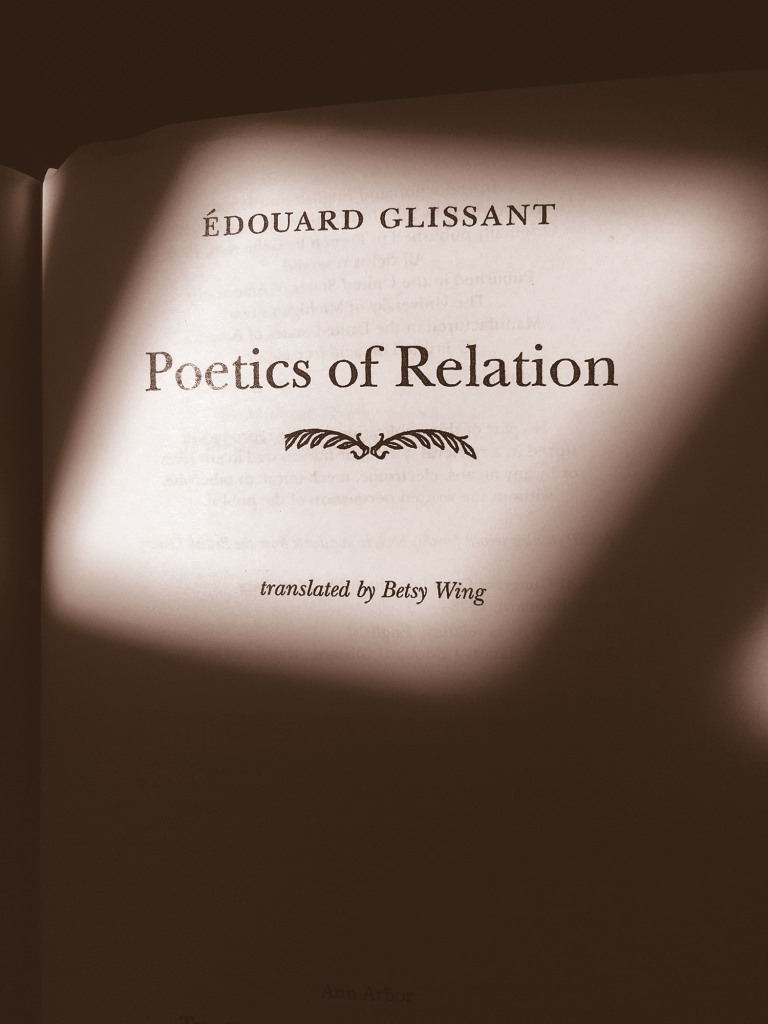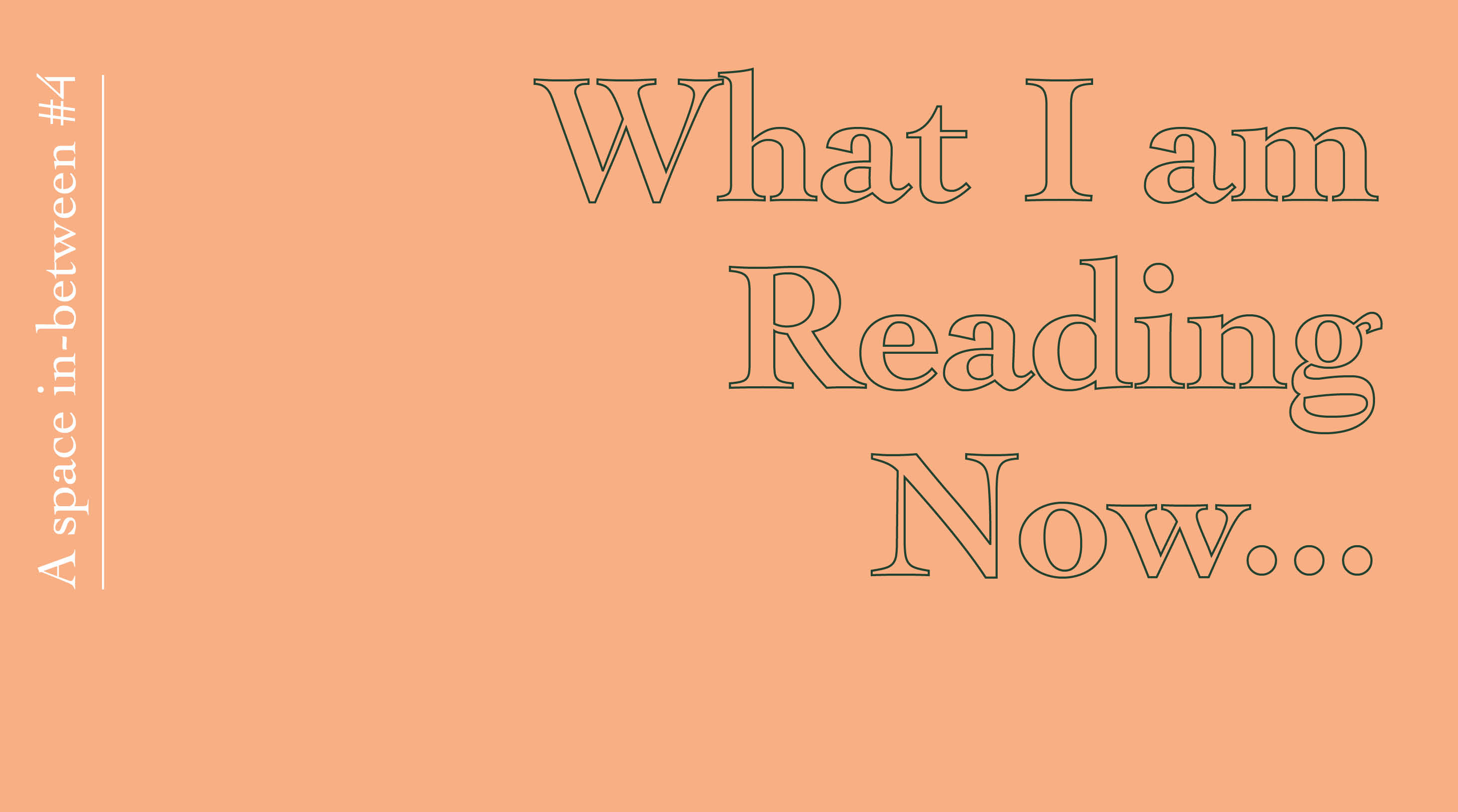What I am Reading Now…
Vanessa Onwuemezi
July 2023
My Nan died in 2019. After her funeral I slept on the sofa in her living room and on the floor of that room I came across an article on the UAP phenomenon, ‘UAPs’ previously being named ‘UFOs’. By the end of the article I had a sense of the novel I was going to write. Thinking back to that moment now I wonder what captured me about the ‘Unidentified Aerial Phenomena’ the article described. I think that it is the same thing that captured Carl G. Jung when he wrote, in the book Flying Saucers, that ‘The cause [of the UFO] must strike at the roots of our existence…’.
It was in a sense poetic that I discovered this article in my Nan’s home. At the time of her death I thought of the loss of her, and also of the language and heritage that tied me to the island she came from, Jamaica. Édouard Glissant’s Poetics of Relation has been on my reading list for a long while, and finally getting to crack it open awakened me to its similarities with Jung’s writing on UFOs, most profoundly, with the ‘totality’ that Jung suggests the UFO represents. The sphere, in the form of the UFO, and the ‘circle with volume’ as written by Glissant, both represent ‘the quantifiable vitality of every possible difference…the motor driving universal energy…’.
Glissant’s Poetics is a never ending process of Relation, the limitless ‘meeting and synthesis’ of differences that he terms ‘Creolization’. This extends to all cultural products, but most importantly to language. Glissant notes how the creole languages formed as part of the mixing of peoples and, in his own case, the relation to the ‘mother tongue’, French. Translation as a process demonstrates to us this form of Relation, and I felt supported in this view when I read the following sentence, in Kate Briggs’ This Little Art: ‘The translator: writer of new sentences on the close basis of others, producer of relations.’ Creolization for me also means accepting ambiguity, the muddling, confounding of history and heritage, the return of the creolized people of the Caribbean represents the return to wholeness, Creolization is not a new ideology, but a new dimension that allows the individual to be ambiguous, Glissant writes that it allows ‘each person to be there and elsewhere, rooted and open, lost in the mountains and free beneath the sea…’.
This ambiguity, according to Wendt and Duvall in the essay Sovereignty and the UFO, is a form of subversion. In the same way that the Caribbean and its people embody the resistance of the totalising effect of empire. The UFO, according to Wendt and Duvall, presents a challenge to ‘anthropocentric sovereignty’ and therefore to ‘the foundations of modern rule.’
Gilssant considers ‘the dialectics between the oral and the written’ as one of the main themes of his Poetics, something which is echoed and deepened in Walter J. Ong’s Orality and Literacy: The Technologizing of the Word a fascinating book which explores the differences between oral and literate cultures, showing how the written word changed humanity, much like the computer, and soon A.I. will change us irrevocably. My readings, although seemingly disparate, seemed to feed each other, or perhaps all thinking leads to the same unspeakable end, addressing the perennial human questions: who are we? Where are we going?
Vanessa Onwuemezi is a writer living in London. She is the winner of The White Review Short Story Prize 2019 and her work has appeared in literary and art magazines, including Granta, Frieze and Prototype. Her debut short story collection, Dark Neighbourhood, was published by Fitzcarraldo Editions in 2021, and was named one of The Guardian’s best books of 2021. It was shortlisted for both the Republic of Consciousness Prize and the Edge Hill Prize in 2022 and her short story Green Afternoon was shortlisted for the BBC National Short Story Award 2022. She has written several exhibition texts most recently for SMIIILLLLEEEE, Rachel Jones, Thaddaeus Ropac gallery, 2021, The Exile of Dionysus, Bill Lynch, Brighton CCA, 2022 and The Throat is a Threaded Melody, Kira Freije, E-Werk Luckenwalde, 2023. She was recently the inaugural writer in residence at the Roberts Institute of Art residency.
_______
This special edition of What I am Reading Now… is co-published with The Roberts Institute of Art. Vanessa Onwuemezi shares readings from her time as the inaugural writer in residence at the Roberts Institute of Art Residency in Cortachy, Scotland.
_______
The Roberts Institute of Art Residency is built on values of rigorous cross-disciplinary thinking, experimentation and conviviality.
The RIA Residency is responsive to the specific needs and aims of residents on a case-by-case basis, which are developed through research and dialogue with each resident. There is no requirement for residents to use their time to produce a ‘finished work’: the priority is to enable residents to think and create freely, try out different forms of expression.
Learn more about the residency.
Reading
Poetics of Relation, Édouard Glissant, trans. Betsy Wing (The University of Michigan Press, USA, 1997)
Flying Saucers: A Modern Myth of Things Seen in the Sky, Carl Gustav Jung (Routledge Classics, UK, 2002)
Orality and Literacy: The Technologizing of the Word, Walter J. Ong (Routledge, 1982)
This Little Art, Kate Briggs (Fitzcarraldo Editions, UK, 2017)
Sovereignty and the UFO, Alexander Wendt and Raymond Duvall (Sage Publications, 2008)

Please note the views published in What I am Reading Now… are personal reflections of the contributors.
These may not necessarily represent the views of the University of Dundee.
———
Previous Issue: Banji Chona, June 2023
Next Issue: Ntiense Eno-Amooquaye, August 2023
